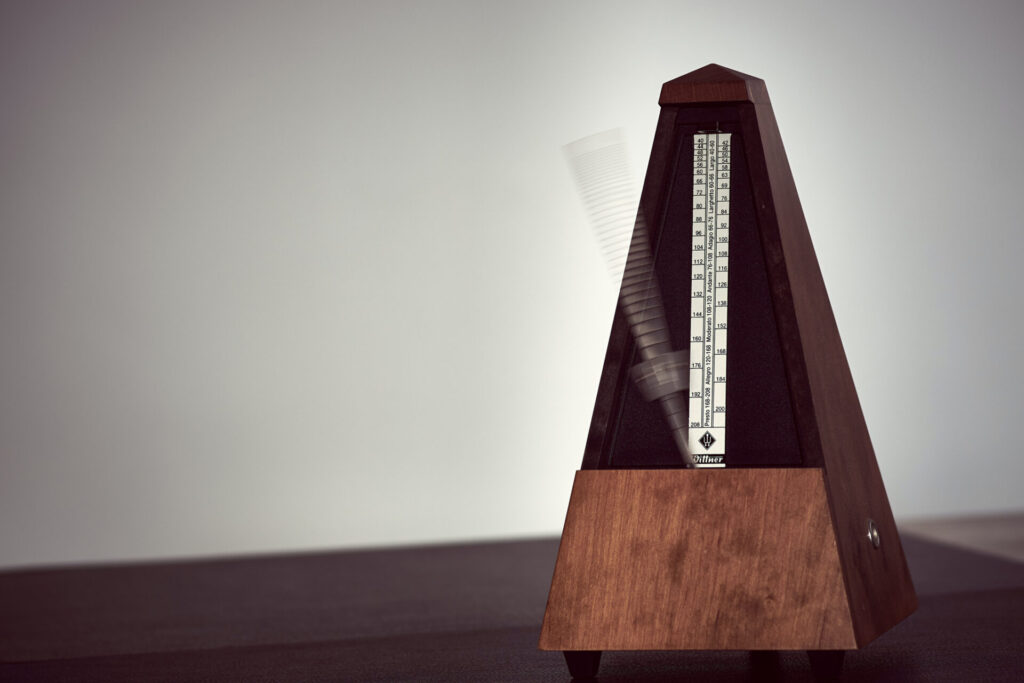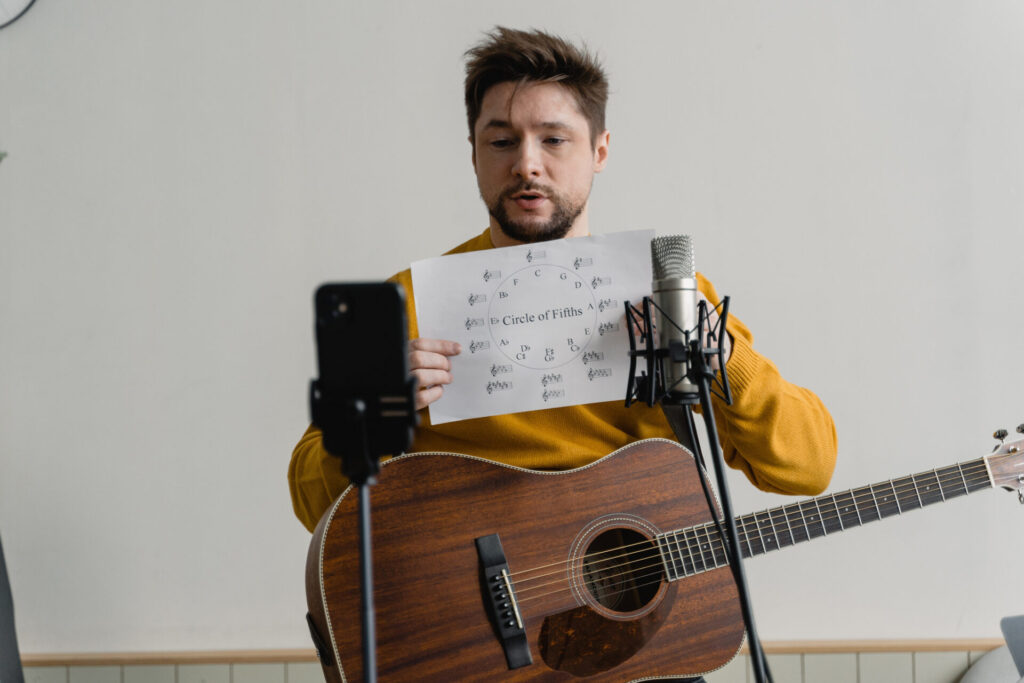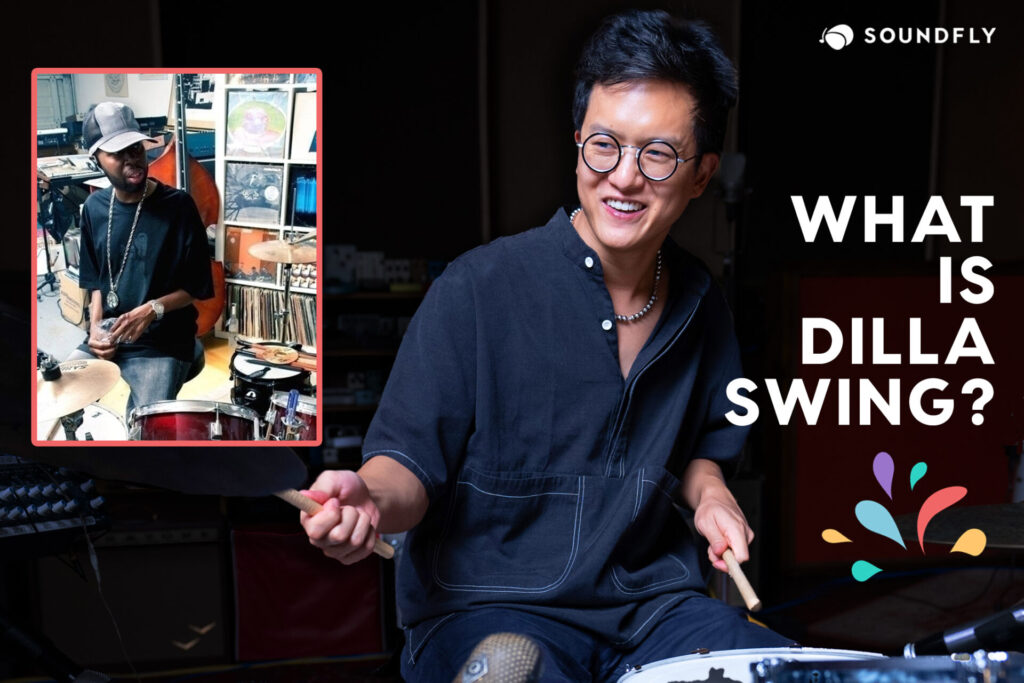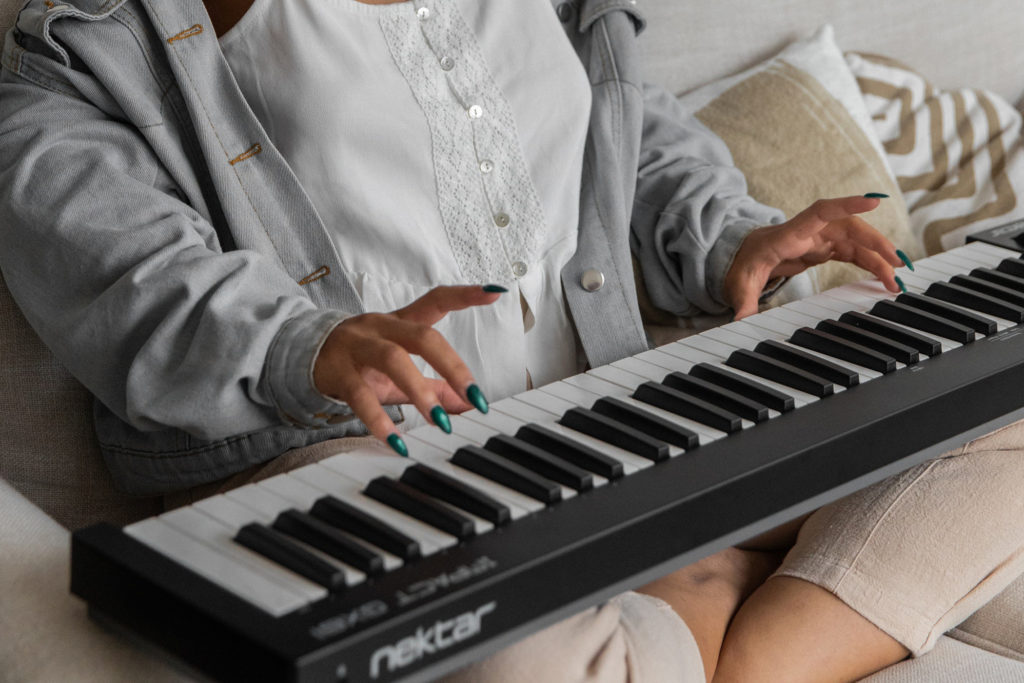
+ Welcome to Soundfly! We help curious musicians meet their goals with creative online courses. Whatever you want to learn, whenever you need to learn it. Subscribe now to start learning on the ’Fly.
Music is one of those pursuits that we undertake without necessarily expecting for the journey to end — that’s part of what I love about being a musician. But in spite of all of my noble desires to keep improving, it can be so difficult to keep the inspiration alive in our own little bubble.
To step back and to objectively hear ourselves, to dream and get into our heads what we’re capable of, and to push ourselves farther than we imagined possible takes a certain amount of humility and bravery. I’ve been fortunate over the years to have had several pianist friends for whom I feel comfortable playing and it’s a practice I highly recommend. Sometimes it can be good as creatives to push ourselves out of our comfort zone and to get good and truly nervous playing for others before performing in front of more people.
It can also be a way of proving to ourselves that we are capable of performing under pressure and that we can learn and grow, just as we did as students.
Over the past few years I was given a chance to do just that. One day, out of the blue, I received a private message on Twitter from a pianist who I had long considered my Bach hero. He had written to ask if I’d like to start chatting about Bach’s “Well-Tempered Clavier” since he was working through them himself in preparation for an upcoming recording.
Needless to say, I was a bit surprised because of who I am — a professional pianist, yes, but one without any recordings and without a huge name or career. In spite of my initial surprise about it all, I accepted his invitation, we met for an initial chat, and we haven’t stopped talking since.
I will never forget the first time he asked to hear me play something during one of our conversations. Oh my. I can’t adequately describe how nervous I was! But I knew this was a really unique opportunity and that it would be foolish to chicken out. Through our short exchanges of musical ideas, I quickly learned, not to my surprise, what an incredible musician, coach, teacher, and mentor he is.
+ Soundfly’s custom program is designed to provide instruction, accountability, and feedback over four or six weeks to make sure you make significant progress on your goals.
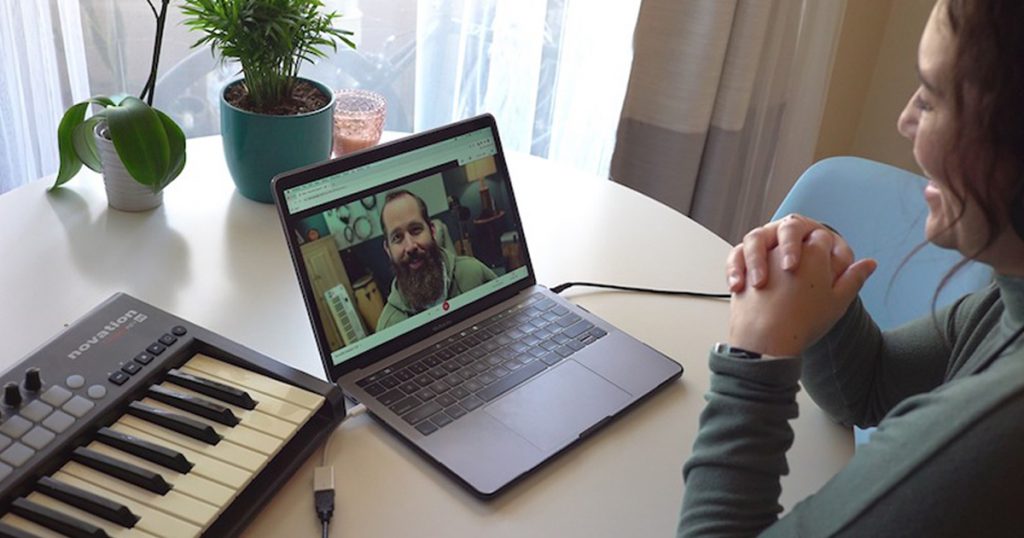
Over the months, those mini-exchanges with him through our video chats evolved into me sending videos of my playing to him in return for feedback. He in turn asked thought-provoking questions, challenged me to truly own my performances and interpretation of any given piece, and helped me to hear subtleties in my playing that may or not reflect what I have going on in my head.
My musical mentor has also been watching my weekly piano sight-reading since I began streaming them at the beginning of the pandemic. At the start of it all I found myself a regular bundle of nerves because he regularly passed on comments to me about very specific things I could do better even in that context.
I admit that at first I responded with a bit of a short temper. I felt that because I was sight-reading I shouldn’t be expected to play in such a finessed way. I believe I even suggested that perhaps he could sit in the hot seat for one episode if he thought what he was asking for was possible. This mini-tantrum on my part led to an interesting discussion and me realizing, after cooling down and a bit more processing, that perhaps it was possible after all.
And guess what? It is. My show is now even more of a joy to do because I’m loving the constant challenge to up my game musically every time, whether it’s on my show or out in the real world.
After two years of being gifted this experience, I now feel like a brand new musician: my practicing is different; my performing is different; every aspect of how I hear music is different and more fine-tuned. My confidence has also increased more than I could have ever imagined.
As a teacher, I’ve added even more things to my toolbox to listen for when working with students. More importantly, perhaps, I’m inspired again to keep pushing myself to get even better and I feel like I have the ears and heart to do so.
Ready for a session of your own?
Soundfly’s community of mentors can help you set the right goals, pave the right path toward success, and stick to schedules and routines that you develop together, so you improve every step of the way. Tell us what you’re working on, and we’ll find the right mentor for you!
—
Erica Sipes has spent most of her musical time as a piano collaborator, playing with and coaching musicians who play just about every instrument. Her passion is helping musicians at all stages discover how to approach music, practicing, and performing in a way that leaves them empowered to make their own musical decisions, encouraged, and excited to share their talents with others.

